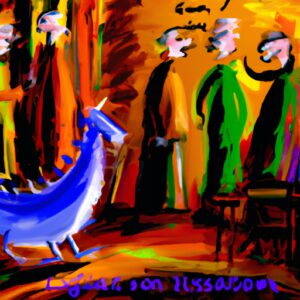How to say unless in Italian?
Before we go into detail, have a look at this sentence: I won’t call you unless there are any problems.
This sentence means: I will call you only if there are any problems.
Unless is a conjunction that means except if or except on the condition that.
In Italian, we say a meno che and it has the same meaning as unless.
A meno che or a meno che non?
Have a look at the sentence below:
Non lo farò, a meno che non mi preghi.
I won’t do it unless you beg me.
You might have noticed the word non after a meno che, which might sound and look confusing since, in English, we don’t say: I won’t do it unless you don’t beg me.
That non is called non-pleonastico. Which means redundant, superfluous, unnecessary, or needlessly wordy.
To understand what we mean, have a look at this sentence: I heard it with my own ears.
In this case, the words with my own ears are kind of unnecessary, right? However, we sometimes like to say unnecessary things to reinforce an idea, and this is why we say it. In other words, with my own ears is pleonastic.
If the non in the sentence we saw above is redundant and somehow unnecessary, why do we use it? Well, it just sounds better for us Italians. It’s a matter of style.
It sounds more spontaneous and natural to say: Non lo farò, a meno che non mi preghi instead of Non lo farò, a meno che mi preghi. However, both structures are accepted.
We just recommend using the unnecessary non after a meno che. But don’t try to find logic or try to translate it literally because it just won’t make sense.
Think this way: a meno che non means unless. That’s it.
How to use a meno che non + subjunctive?
The subjunctive expresses hypothetical situations, and when we say a sentence with a meno che non, we mention a condition, which is hypothetical. That is why a meno che non triggers the subjunctive.
Note that you could use any of the four subjunctive tenses, depending on what you want to say.
Here are the four subjunctive tenses you can use:
- Present subjunctive (congiuntivo presente)
We use it to talk about present or future events.
Andremo al mare domani, a meno che non piova.
We’ll go to the beach tomorrow unless it rains.
- Past subjunctive (congiuntivo passato)
We use it to talk about past events that happened at a specific time.
Non puoi uscire a meno che tu non abbia fatto i compiti.
You can’t go out unless you have finished your homework.
- Imperfect subjunctive (congiuntivo imperfetto)
We use it to talk about events in the past that happened over a prolonged time.
Lui veniva sempre da me a meno che non lavorasse.
He would always come to mine unless he was working.
- Past perfect subjunctive (congiuntivo trapassato)
We use this tense to refer to an event that happened before the hypothetical event in the main clause, which also happened in the past:
Non sarei mai venuto alla festa, a meno che tu non mi avessi invitato.
I wouldn’t have come to the party unless you had invited me.
A meno che non: examples
Let’s now have a look at some more examples with a meno che non:
A meno che non sia gratuito, non ci andrò.
I won’t go unless it’s free.
Dovrò rinunciare all’acquisto, a meno che non mi faccia un prezzo speciale.
I will have to give up the purchase unless you give me a special price.
Verrò da te a meno che non debba lavorare.
I’ll come to yours unless you have to work.
Questo è impossibile, a meno che non offriamo compensazioni adeguate.
This is not possible unless we offer appropriate compensation.
Non parlo con te a meno che tu non mi chieda scusa.
I’m not going to talk to you unless you apologize.
A quest’ora sarà sicuramente a casa, a meno che non sia rimasto bloccato dal traffico.
He is certainly home by now unless he got stuck in traffic.
Puoi usare la sua macchina a meno che non l’abbia venduta.
You can use his car unless he sold it.
Le chiavi dovrebbero essere lì a meno che qualcuno non le abbia portate via.
The keys should be there unless someone took them away.
As you can see, even though the non is pleonastic and unnecessary we do like to use it.









